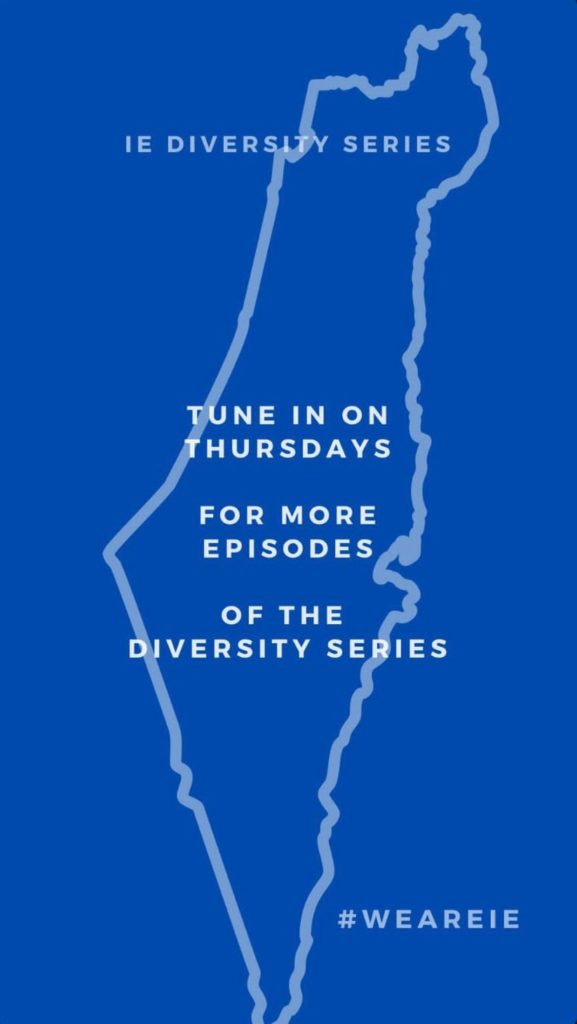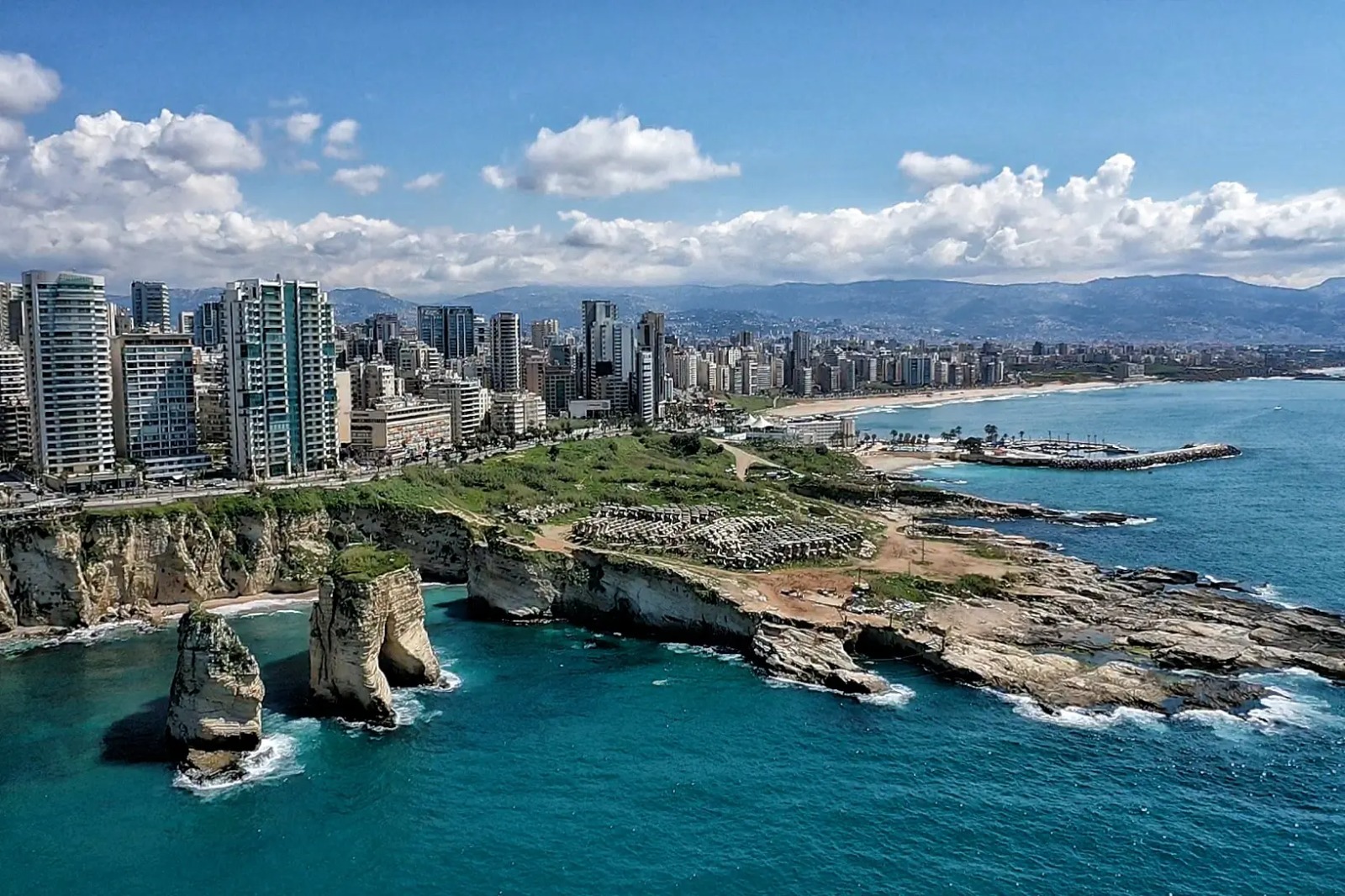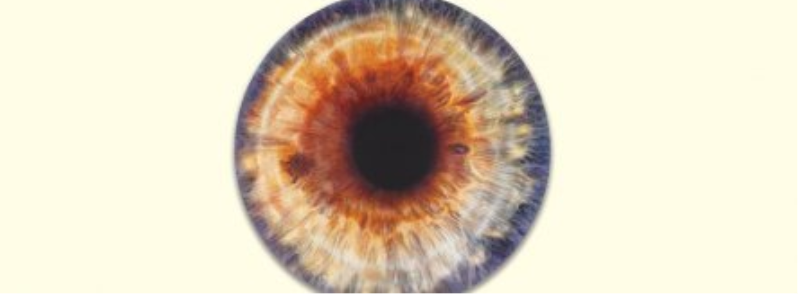On April 30th, the Campus Life Instagram team, @iecampuslife, posted stories on Israel as part of their diversity series. They included a map of Israel, which disregarded Palestinian sovereignty and included an invaded portion of Syria disputed by the two countries. In addition, they portrayed Palestinian cuisine as their own. This article serves as a response to the posts, a collaboration between Palestinian and Lebanese students who felt insulted by the content posted, which disguises our culture and home as their own. We respect IE University as an institution and understand its promotion of diversity; however, we would have liked for this institution to remain respectful and neutral on such a salient issue. As a result, we would like our perspective to reach the community, as we serve as a crucial part of it and would like to practice our right to freedom of expression.

As a Lebanese student who decided to travel abroad, I knew that I would be coming into an entirely new environment, with people from all over the world. That is one of the reasons I chose IE University, for its promotion of diversity. However, as a Lebanese student, I expect the university to take into consideration Middle Eastern students’ feelings when it comes to the occupation of the Palestinian lands. I considered the post made by @iecampuslife, promoting our culture as Israel’s, as unsympathetic to the struggle that the Palestinians are facing everyday trying to maintain their heritage. For someone uninformed about the situation, it might have seemed like a normal Instagram story. For Middle Easterners, who know of the injustice, or even have experienced the injustice happening first-hand, it was a knife to the back.
What I perceived as more disappointing, however, is the fact that the Arab students tried to inform the @iecampuslife page that the information they posted is indeed hurtful to us, but received an automated response, prompting this article. Thus, a small representation of the Arab community wanted to share their perspective.
Leyan AlMaqousi, a Palestinian student, felt angered by the insensitive posts, placing an emphasis on the timing in which they were posted: right after Israel was recognized as an apartheid state by the ICC and Human Rights Watch. Leyan, as a Palestinian, has witnessed first-hand the expropriation of her people from their homes and lands, the torture of her people regardless of their age and gender, and colonialism ignored by the media. Can we really blame her for being angered when they claim Palestinian food as there’s too? At this point, it’s the only thing they haven’t taken from us.
Talal Shehadeh, a Lebanese-Palestinian student, felt disappointed of the misinformation shared, and even more disappointed that the community’s complaints were ignored. Talal stands by IE University’s encouragement of diversity, but these stories managed to insult our culture in the process. A topic regarding a struggle no one would understand unless witnessed first-hand, should not be touched upon in such regards. “Let down” is how Talal felt that he was not given the chance to be seen or heard, when he received an automated response.
Gabrielle Nino, a Palestinian student, believes that such a post neglects the efforts of the Palestinians who have fought continuously for the past 70 years to regain their home. Such a post disgraces the will and the fight that we hold extremely close to our hearts. She maintains that portraying the Palestinian cuisine as Israeli disregards Palestinian representation specifically and Arab representation generally.
Majd Barghouthi, a Palestinian student, felt triggered by the cultural appropriation. Not only are they triggering but also false to extreme extents. Shocked that they were posted by a page related to IE University, Majd attempted to present his opinion. His opinion was disregarded though, which he felt unacceptable, as Majd has the equal right of presenting his perspective, specifically on issues defaming his culture and home.
Lastly, Abdallah Kuraydli, a Lebanese student, understands that there exists no political affiliation behind the post but felt that the post aimed at cancelling his identity and culture when it absurdly claimed “hummus and arak”, widely famous for being Arab, as Israeli.
We as students appreciate IE university’s promotion of diversity and are grateful to meet people from different cultures. However, Middle Easterners, specifically Palestinians, have suffered a great deal from the Israeli occupation. The pain that we as Palestinians and Lebanese feel is a pain no one will understand, a pain we carry to the grave. Especially now, Palestine is in constant instability, dealing with imposed injustice whereas the other side thrives. At this point, Palestinians face daily a breach of fundamental human rights. Therefore, the triggering that such a post caused is completely expected. We hope in the future that IE University remains neutral between its students as we understand there exists Israeli students in it as well. Finally, we hope our feelings are taken into consideration, as the Palestinian pride is one we carry in our souls and hearts to every corner in the world we go.
Special thanks to Leyan ALMaqousi, Gabrielle Nino, Talal Shehadeh, Majd Barghouthi and Abdallah Kuraydli for the collaboration






